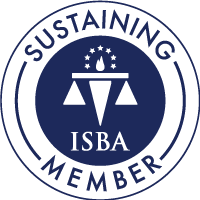You know your marriage is over, but you want to end it amicably, if possible. Maybe you have children and want to better ensure the coparenting relationship goes smoothly, or you have a business and want to reduce the risk of media attention that could have a negative impact on operations. Whatever the reason, those who are looking for a more efficient and private alternative to litigation may want to consider mediation. It can provide a private, less adversarial process to resolve disputes.
What is mediation?
Mediation is a process where a neutral third party, known as a mediator, helps couples negotiate and reach an agreement on various aspects of their divorce, such as property division, child custody, and support. Unlike a judge, a mediator does not make decisions for you but facilitates communication and proposes solutions. Benefits of this process can include:
- Confidentiality: Unlike court proceedings, which are public, mediation is a private process, allowing you to keep personal affairs confidential.
- Control: You have more control over the outcome, as you are directly involved in negotiating the settlement.
- Cost-Effective: Mediation can be less expensive than going to court due to reduced legal fees and a shorter timeline.
- Reduced Conflict: Mediation fosters cooperation and can lead to a more amicable relationship post-divorce, which is particularly beneficial if children are involved.
How do I choose a mediator?
Look for a mediator with extensive experience in family law and high-asset divorce cases. Look for a professional who understands complex financial matters and the nuances of Indiana law. Check any potential mediator’s credentials. Make sure the mediator has the necessary training and relevant certifications or awards.
It is also important to choose someone both parties feel comfortable with, as trust is crucial in the mediation process.
What can I do to prepare for mediation?
You can help to better ensure a successful and efficient mediation process by gathering financial documents. It helps to be prepared with detailed financial records, including assets, debts, income, and expenses. It is also a good idea to think about your priorities. Know what is most important to you in the settlement, but also be prepared to compromise.


